- Home
- Prelims
- Mains
- Current Affairs
- Study Materials
- Test Series
 EDITORIALS & ARTICLES
EDITORIALS & ARTICLES
Jan 25, 2022
PM MODI INAUGURATES NEW CIRCUIT HOUSE IN SOMNATH; TARGETS CONGRESS
Recently, the Prime minister of India inaugurates the new circuit house in Gir Somnath district of Gujarat.
 Somnath temple
Somnath temple
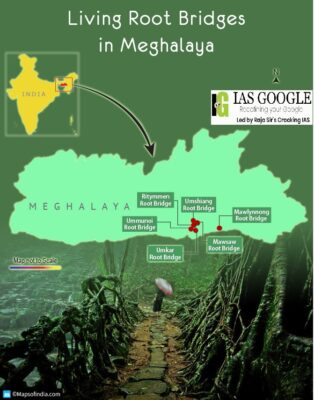 Living Root Bridges
Living Root Bridges
 National Single Window System (NSWS):
National Single Window System (NSWS):
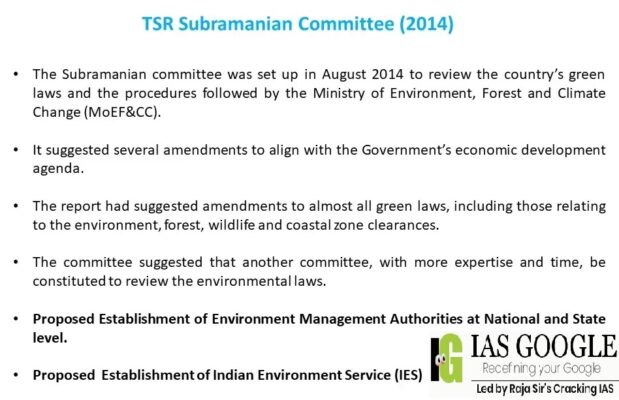 T.S.R Subramanian committee report on environment
T.S.R Subramanian committee report on environment
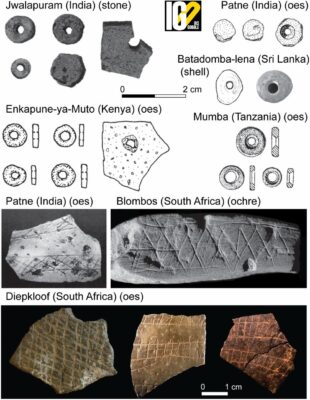

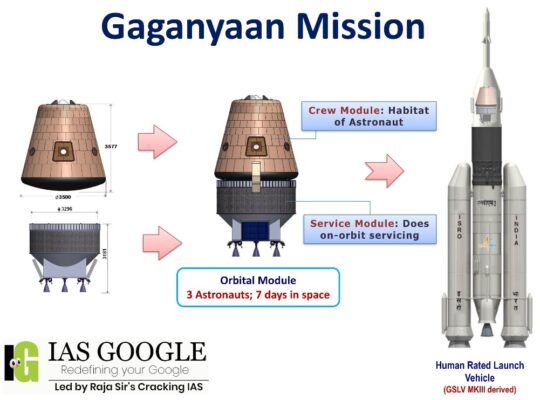
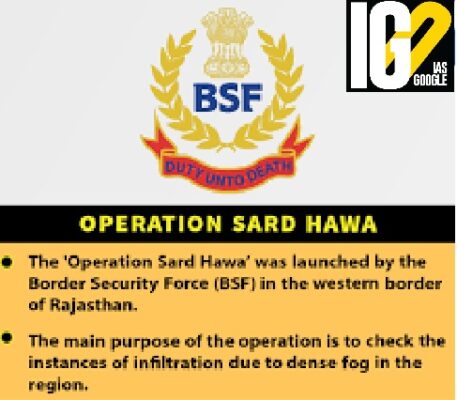 Operation Sard Hawa:
Operation Sard Hawa:
 Conjugal rights:
Conjugal rights:
 Somnath temple
Somnath temple
- Somnath temple is also known as Deo Patan.
- Deity: Lord Shiva
- It is the most sacred pilgrimage site for the Hindus.
- Temple is located along the coastline in Prabhas Patan near Veraval, Saurashtra region of Gujarat.
- The Somnath temple is located close to the ancient trading port of Veraval.
- In past, the temple has suffered destruction at the hands of Mahmud Ghazni in 1024, Khilji’s army in 1296, Muzaffar Shah in 1375, Mahmud Begada in 1451, and Aurangzeb in 1665.
- The first Somnath temple varies between the early centuries of the 1st-millennium to about the 9th-century CE.
- The present Somnath temple was reconstructed in the Māru-Gurjara style of Hindu temple architecture.
- In Hindus, it is believed to be the first among the twelve Jyotirlinga shrines of Shiva.
- The temple finds its existence in the most ancient texts of Hindus like Shreemad Bhagavat, Skandpuran, Shivpuran, and Rig-Veda.
- It has been a pilgrimage site from ancient times as it was said to be the junction of three rivers, Kapila, Hiran and the mythical Saraswati (called triveni sangam).
 Living Root Bridges
Living Root Bridges
- A living root bridge is a type of simple suspension bridge formed of living plant roots by tree shaping.
- These aerial bridges were built by weaving and manipulating the roots of the Indian rubber tree that have been serving as connectors for generations in Meghalaya.
- They are handmade by the Khasi and Jaintia tribes.
- Life Span: The average life span of the bridge is 500 years.
- Found in abundance in Meghalaya.
- Roots of Indian Rubber Tree are:
- Elastic
- Can easily combine
- Can grow in rough, rocky soils
- It uses traditional tribal knowledge to train roots of the Indian rubber tree, found in abundance in the area, to grow laterally across a stream bed, resulting in a living bridge of roots.
- The longest known example of a living root bridge is Rangthylliang bridge, near the small Khasi town of Pynursla in India. It can be accessed from the village of Mawkyrnot.
- It is India’s first virtual platform for spice exports.
- It is a 3D platform which serve as a virtual trade route for Indian spice exporters to reach out to global customers.
- The portal uses AI-based technology to connect relevant spice buyers with Indian spice exporters.
- The OSM envisages putting in place a single source of information for the food grains stored in the country for central pool through integrating State portals with the central portal.
- It will develop an ecosystem of storage management applications across the states, each being capable of capturing the Minimum Storage Specifications (MSS).
- It will improve efficiency and transparency in stocking, storage, movement, and distribution of food grains.
- It will help in driving down costs of food storage and distribution by checking leakages in the entire process.
 National Single Window System (NSWS):
National Single Window System (NSWS):
- NSWS is a digital platform providing a one-stop solution to investors to apply for approvals.
- Developed by: Department for Promotion of Industry and Internal Trade (DPIIT) and Invest India.
- Both of these bodies are under the Ministry of Commerce and Industry.
- Currently, NSWS supports approvals from 32 Central Departments and 14 State governments.
- To establish a single-window mechanism by integrating the services provided by various Central Ministries, Departments, and State Governments
- To provide a one-stop-shop for procuring pre-establishment and pre-operation approvals and permits required to establish a business in India
 T.S.R Subramanian committee report on environment
T.S.R Subramanian committee report on environment
- The Subramanian committee was set up in August 2014 to review the country’s green laws and the procedures followed by the Ministry of Environment, Forest and Climate Change (MoEF&CC).
- It had suggested amendments to almost all green laws, including those relating to environment, forest, wildlife and coastal zone clearances.
- It proposed an Environmental Laws (Management) Act (ELMA), that intended full-time expert bodies National Environmental Management Authority (NEMA) and State Environmental Management Authority (SEMA).
- These bodies will be constituted at the Central and State levels respectively to evaluate project clearance (using technology and expertise), in a time bound manner, providing for single-window clearance.
- They suggested a fast-track procedure for linear projects (roads, railways and transmission lines), power and mining projects and for projects of national importance.
- The Air Act and the Water Act is to be subsumed within the Environment Protection Act.
- The existing Central Pollution Control Board and the State Pollution Control Boards, which monitor the conditions imposed on the industries to safeguard environment are proposed to be integrated into NEMA and SEMA once the new bodies come into existence.
- It suggested an appellate mechanism against the decisions of NEMA/SEMA or MoEF&CC, in respect of project clearance prescribing a three-month deadline to dispose appeals.
- It proposed a National Environment Research institute on the lines of the Indian Council of Forestry Research and Education.

- The Ostrich eggshell bead technology originated in eastern Africa and spread southward approximately via a regional network.
- This communication is the oldest social network ever identified.
- This coincides with a particularly wet period in eastern Africa.
- The beads disappeared 33,000 years ago due to a major shift in global climates as eastern Africa experienced a dramatic reduction in precipitation as the tropical rain belt shifted southward.
- Ostrich eggshell beads are ideal artefacts for understanding ancient social relationships.
- They are the world’s oldest fully manufactured ornaments, meaning that instead of relying on an item’s natural size or shape, humans completely transformed the shells to produce beads.

- A group of biologists have found Himalayan flowering tree.
- It possessing antiviral properties with a potential to be used in the treatment against SARS-CoV-2.

- VIKAS (Vikram Ambalal Sarabhai) is a family of liquid-fuelled rocket engines conceptualized and designed by the Liquid Propulsion Systems Centre since the 1970s.
- It will power Gaganyaan mission into space.
- Types of Vikas Engine: High Thrust VIKAS Engine (HTVE) and High-Pressure VIKAS Engine (HPVE).
- The engine is used in the Polar Satellite Launch Vehicle (PSLV) and the Geosynchronous Satellite Launch Vehicle (GSLV) series of expendable launch vehicles for space launch use.
 Operation Sard Hawa:
Operation Sard Hawa:
- It is conducted by Border Security Force (BSF) at the western international border of Rajasthan.
- The operation will be carried out from January 23 to 28.
- Under this, vigil will be increased to check the instances of infiltration due to the dense fog in the area.
- BSF conducts "Operation Garam Hawa" in summer and "Operation Sard Hawa" in winter every year.
 Conjugal rights:
Conjugal rights:
- Conjugal rights are the social rights of either spouse, emerged due to a marriage.
- It is an inherent right of the husband or wife to one another’s society is in the institution of marriage.
- It includes the right to the other's consortium (company), cohabitation (sexual intercourse), and maintenance (including property related matters) etc.
- Denial of conjugal rights leads to the restitution of conjugal rights, by enforcement.
- In India, due to non-availability of Universal Civil Code (UCC), all the marriage and divorces related affairs are regulated according to the personal laws.
- And as a result, the conjugal rights are also regulated accordingly under concerned personal laws.









 Latest News
Latest News General Studies
General Studies